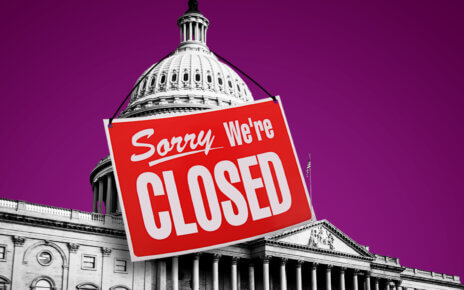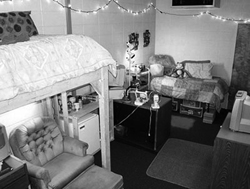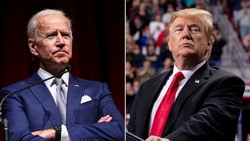President Trump signed an executive order on immigration, banning Syrian refugees from entering the United States as well as citizens from seven Muslim majority countries, on Friday, Jan. 27.
The order prevented Syrian refugees from seeking asylum in the U.S. indefinitely. It also bans travelers from Iran, Iraq, Libya, Somalia, Sudan, Syria, and Yemen, and withheld all refugee admissions for 120 days, according to the New York Times.
As a result of the ban, those traveling to the U.S. were stopped in airports both in the United States and abroad – legal residents as well as visitors and students in Cairo, Dubai, and Istanbul were blocked; others were sent back after arriving.
President Trump considers the immigration ban a success: “It’s working out very nicely” Trump said the Saturday following the executive order’s signing, reported CNN. “You see it at airports. You see it all over. It’s working out very nicely and we’re going to have a very, very strict ban.”
The Department of Homeland Security also agreed to impose the president’s executive order. White House chief of staff Reince Priebus assured green-card holders from the seven banned countries that they would be able to return to the United States.
However, there has been widespread opposition what many are calling a “Muslim ban.” Citizens have expressed their discontent by protesting in airports, where lawyers offered legal advice to those being detained.
There have been demonstrations throughout the country – people in New York, Atlanta, Chicago, Los Angeles, Houston, Seattle, Washington D.C., Dallas, Boston, Detroit, and Philadelphia, among others, have taken to the streets voicing their concerns.
Former President Barack Obama also criticized the immigration and travel ban on Monday, Jan. 30. He commended citizens for “exercising their Constitutional right to assemble, organize, and have their voices heard…when American values are at stake,” reported The New York Times.
Former Acting Attorney General, Sally Yates, spoke out against the executive order. She told the Justice Department not to support the order, and deemed it unlawful. President Trump fired Ms. Yates only hours later for not following the policy of his administration.
On the day of the signing, President Trump said the immigration ban would “keep Islamic terrorists out of the U.S.”
Officials from his administration defended Trump’s executive order, saying that his actions would help the U.S. improve its vetting procedures. Officials also said that the legislation was thoughtfully created during Trump’s transition to the presidency.
Some speculate that the immigration ban could be used to the advantage of terrorist groups, such as ISIS.
Associate professor of Political Science Kevin Dooley said these groups “will be able to use this travel ban as a recruitment tool.” He continued that “misinformation about the United States has always been used by anti-American groups to recruit those who would do us harm.”
Rekha Datta, a professor in the school of Political Science, said there are studies that found the ban could have dangerous consequences, which depend on a host of factors, including “religious, personal, social, economic, and policy causalities.”
She said that “some analysts think that as a result of this policy moderate Muslims will mobilize and become radical. Others think that it is an affront to millions of peace loving Muslims if we paint every member of the community that way.”
Abby Finn, a sophomore English student at Monmouth, is worried about her friends, many of whom she said could be affected by the ban. “It makes me feel bad that this is happening to them” she said. “Especially since we’re the country of freedom and it just doesn’t seem like the correct way to go.”
Many also fear that President Trump’s immigration ban may perpetuate Islamophobia in the U.S. “Islamophobia is a by-product of misunderstanding and fear” Dooley said.
However, the executive order signed by the President is not yet final and legal battles are set to begin. According to the Wall Street Journal, more than two dozen petitions and lawsuits have been filed over the order.
The most notable lawsuit was filed in the state of Washington in which the state of Minnesota also joined. On Friday, Feb. 3, Judge James Robart of the U.S. District Court for the Western District ordered a temporary restraining order on the ban and travel has resumed from the targeted countries.
The legal arguments on behalf of the two states according to the Wall Street Journal is that the ban strips their states of tax revenue, interferes with its businesses, and separates families and stranded some college faculty and students abroad.
Justice Department lawyers countered saying that the states arguments are “hypothetical and speculative” in papers filed over the weekend. President Trump tweeted that the decision is “ridiculous and will be overturned!”
The White House has appealed Judge Robart’s order. Oral arguments were made on Tuesday, Febr. 7, in front of the U.S. Ninth Circuit Court of Appeals.
Legal experts have said that the decision of the appeals court may decide the fate of the executive order because of the vacancy in the Supreme Court. The Supreme Court would need five judges to overturn the decision one way or another. Since the Court is currently split 4-4, the decision of the appeals court would stand a Supreme Court decision was split down the middle.
As a college community, there are many ways to combat islamophobia on campuses, such as “through education and pursuing an open-dialogue among groups who feel passionately about their differences” said Dr. Dooley.
He continued, “free speech is what separates the U.S. from practically every other country on earth and it seems to be in the best interest of colleges and universities to promote a safe venue for all viewpoints.”
Datta commended Monmouth for its action taken on islamophobia. She cites “World Hijab Day” and “Meet a Muslim” program as the campus’s successes in celebrating diversity.
“I am proud of our students, our next generation, who stand against prejudice and bias,” Datta said. “President Brown’s letter to the campus community last week is a testament to how the University welcomes diversity and cherishes American values that stand on it.”



